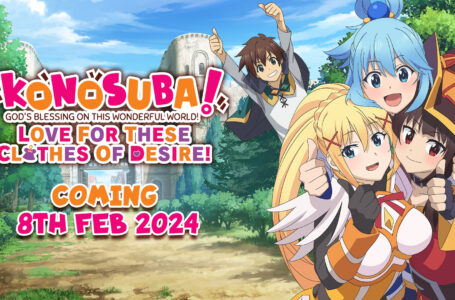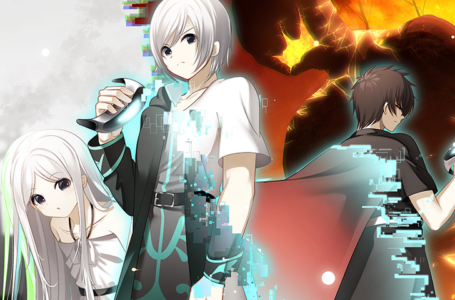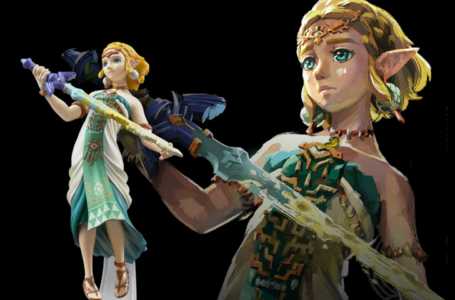Revisiting Tetris Effect Connected on Switch
I’d been waiting a while for Limited Run Games’ physical release of Tetris Effect Connected for Nintendo Switch, and yesterday it finally plopped through my letterbox, so I took that as the perfect opportunity to revisit a game I hadn’t played for a while — and one which I had only previously played on PS4.
As tends to happen with this sort of thing, I ended up playing for several hours, and thus, since the last time we talked about Tetris Effect Connected here on Rice Digital was over a year ago, I thought it was high time we gave it some renewed love.
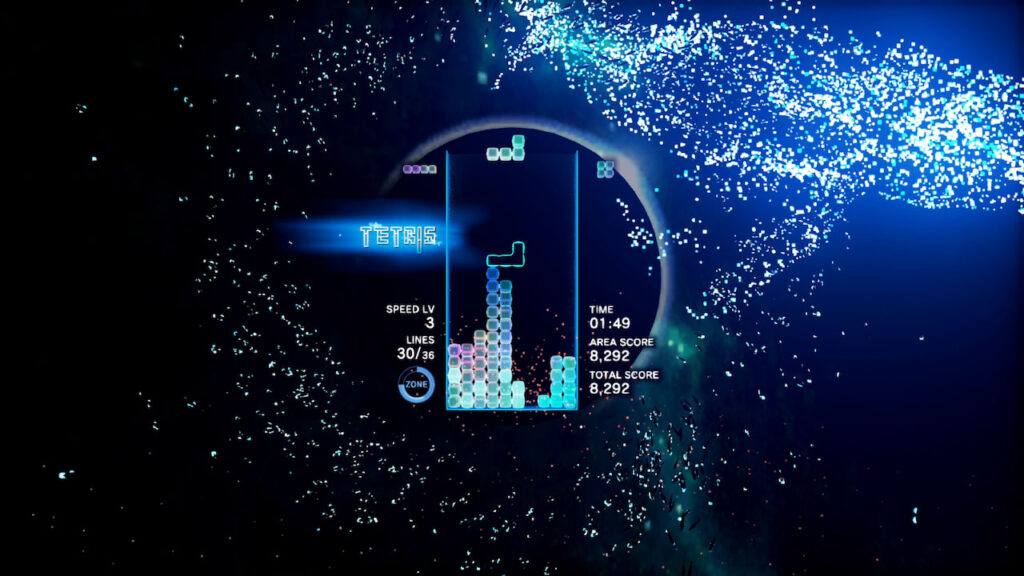
For the unfamiliar, Tetris Effect Connected is the enhanced and expanded version of Tetris Effect, which originally released for PlayStation 4 in 2018. The “Connected” aspect was originally exclusive to the Xbox versions of the game for about nine months or so before being added to the PS4 version and ported to Switch. Rather pleasingly, this fairly substantial update to the game was completely free rather than being distributed as DLC — though you do require your platform of choice’s online service subscription in order to take advantage of the actual “Connected” side of things.
Tetris Effect is a great example of the universal, worldwide appeal of Tetris. Despite being Russian in origin, the Tetris formula has been explored and pulled apart by developers from all over the world, each adding their own distinctive twist on the formula. In this case, the distinctive angle on the whole experience is provided by the legendary Tetsuya Mizuguchi, previously known for his work on “synaesthetic” video games such as Rez, Lumines and Child of Eden.
As you might expect from a Mizuguchi jam, Tetris Effect places a strong focus on the interplay between visuals, sound and interactivity. Each stage in the game is based around a piece of music, and everything you do in the game contributes to that piece of music. Moving a piece might result in a twiddly piano sequence; dropping a block might give you a heavy bass drum beat; creating lines might cause a triumphant choral outburst.
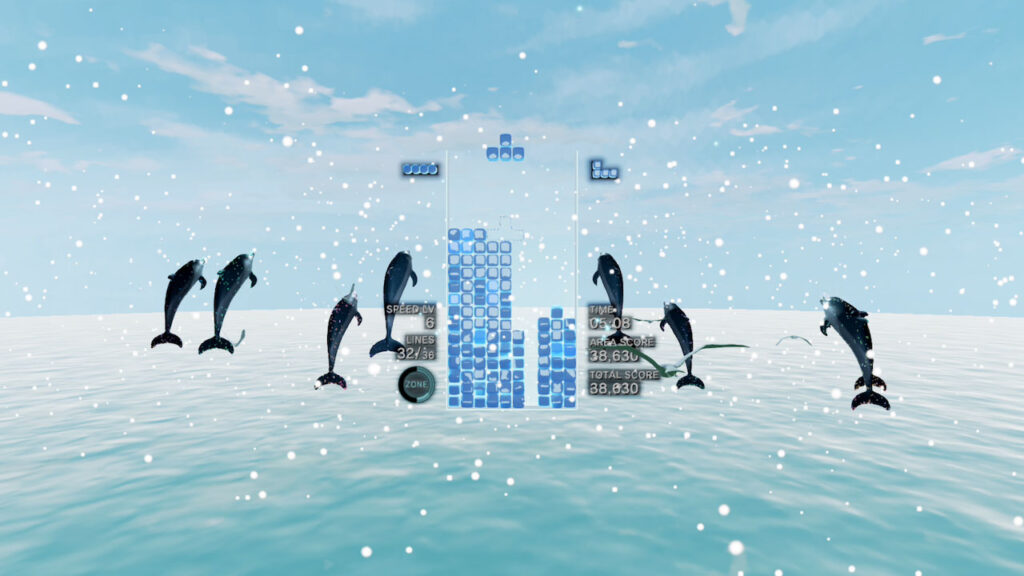
I say “might” because there’s a massive amount of variation from stage to stage. Some stages place a strong focus on melodies and pleasing harmonies; others are atmospheric, ambient experiences with lots of sound effects; others still feature a strong association between the visuals and the sounds through elements like mechanical noises moving in parallel with the imagery of machinery.
Each stage in the game is depicted as a “journey” of sorts; in the game’s main single-player mode, you simply have to make 36 lines in order to complete the level, but as you work your way through those lines, the piece of music and the animations going on in the background will evolve. Sometimes this will lead to you having to deal with intense, high-speed sections all of a sudden, while at others you’ll be able to reach a blessed oasis of calm.
The nice thing about Tetris Effect is that unlike many other versions of Tetris, the difficulty curve isn’t linear — or indeed predictable at times. Whereas the most traditional take on Tetris sees the game gradually accelerating to increasingly unreasonable speeds as your line count racks up, in Tetris Effect the overall pace of the game ebbs and flows according to the music, creating an oddly compelling sense of emotional engagement.
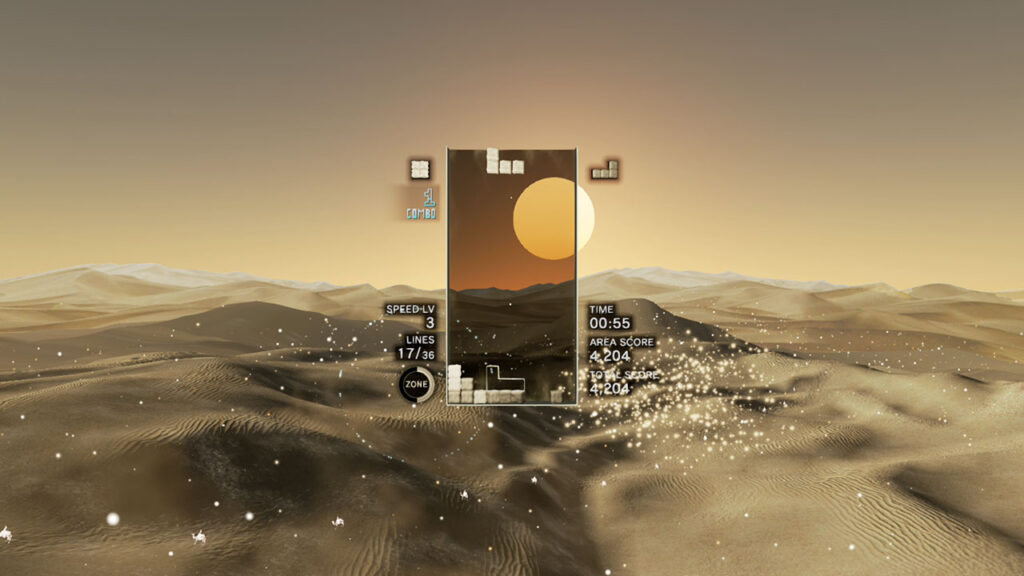
It’s easy to look on Tetris Effect as being a chilled out, relaxing game, but there are a number of stages that subvert this expectation with chaotic, flaming imagery and high speed sequences, with blocks dropping relentlessly causing a considerable amount of stress and anxiety.
But it’s clear that the game isn’t doing this to be malicious towards the player; it’s instead doing so as a means of reflecting how even the most challenging of circumstances can be survived with a change in your outlook. Sure, you might have to do things a bit differently to how you do when you’re just coasting along — but you’ll quickly discover that things aren’t as bad as they might initially seem. And the feeling of relief you get when things calm down a bit is absolutely wonderful.
This all carries across to the multiplayer “Connected” aspect also, of which the highlight is absolutely the three-player cooperative mode, in which you team up with two random strangers to defeat a boss. The way this works is absolutely sublime, tasking you with playing parallel solitaire games in order to build up a communal meter, then pushing your three wells together into a turn-based sequence that tasks you all with working together to make as many long lines as possible.
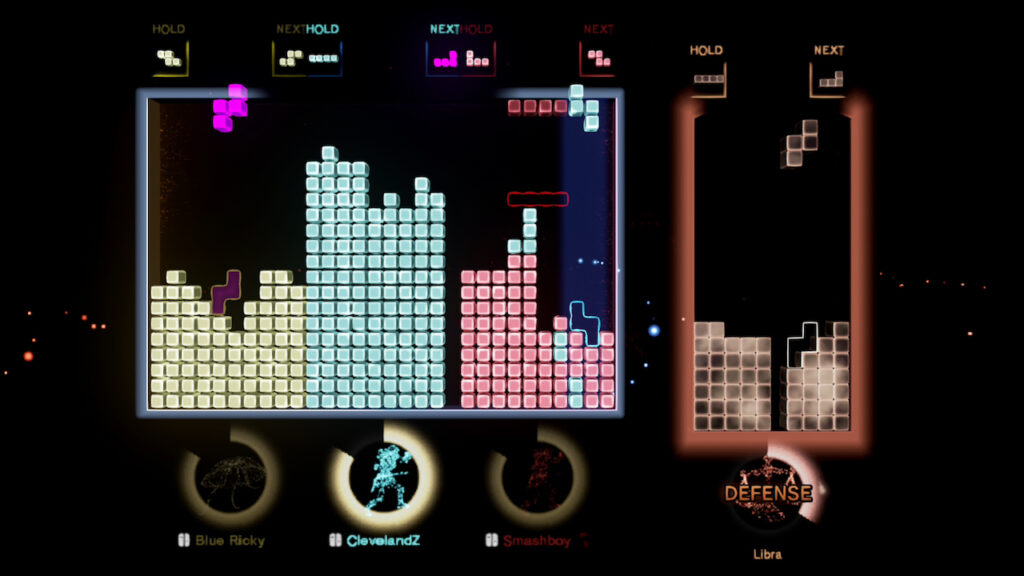
It’s amazing quite how connected you feel to those other players, and all without a word ever being spoken between you. You’ll instinctively come to understand what your comrades are trying to do, and you’ll have plenty of time to both indicate your own intentions and demonstrate that you’re a useful part of the team. There’s a fun quasi-competitive aspect to the multiplayer mode that tracks who made the greatest contributions to the overall cause, but this is never done in a player-shaming sort of way; you’re all in this together.
And that’s the beauty of Tetris Effect. It challenges you, sure, particularly on its higher difficulty levels, but it also feels like a game that wraps you in a wonderful sense of warmth, love and supportiveness. It manages all this without resorting to rosy-cheeked “wholesomeness” tropes, and instead through more abstract, ill-defined but no less potent means. As the nights draw in and the weather gets colder, it’s the perfect game to play in a darkened room, sitting beneath a blanket and accompanied by the warm glow of Christmas lights.
At least that’s what I’m going to be doing for the foreseeable future, anyway.
Join The Discussion
Rice Digital Discord
Rice Digital Twitter
Rice Digital Facebook
Or write us a letter for the Rice Digital Friday Letters Page by clicking here!
Disclosure: Some links in this article may be affiliate links, which means we may earn a small commission if you make a purchase after clicking on them. This is at no additional cost to you and helps support Rice Digital!
- Letter from the Editor: passing the torch - June 30, 2023
- Super Woden GP 2 is looking promising - June 30, 2023
- Inti Creates is making a 32 bit-style Love Live action platformer - June 26, 2023




